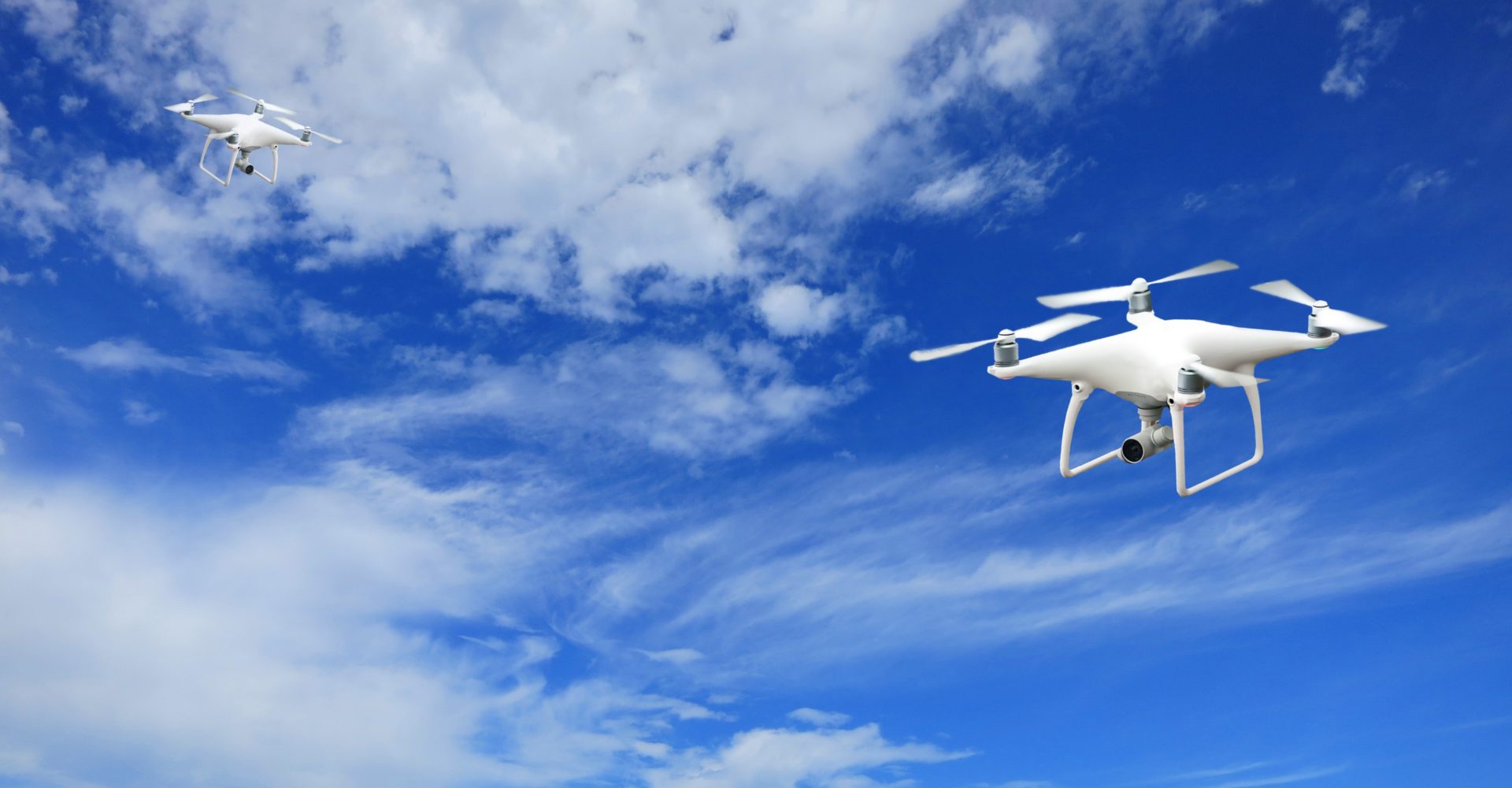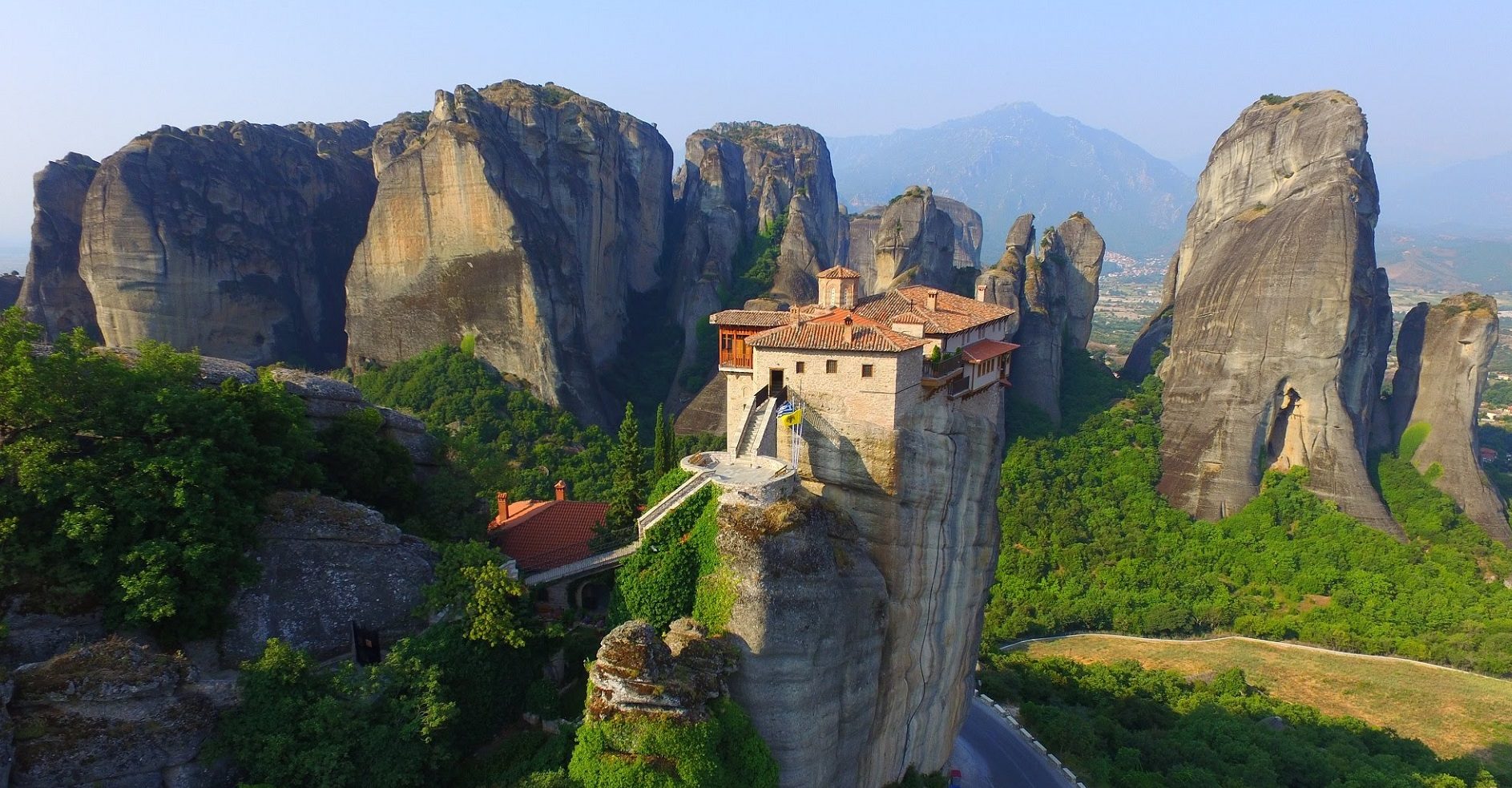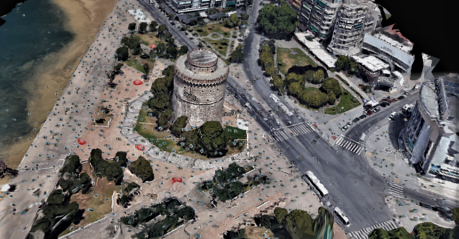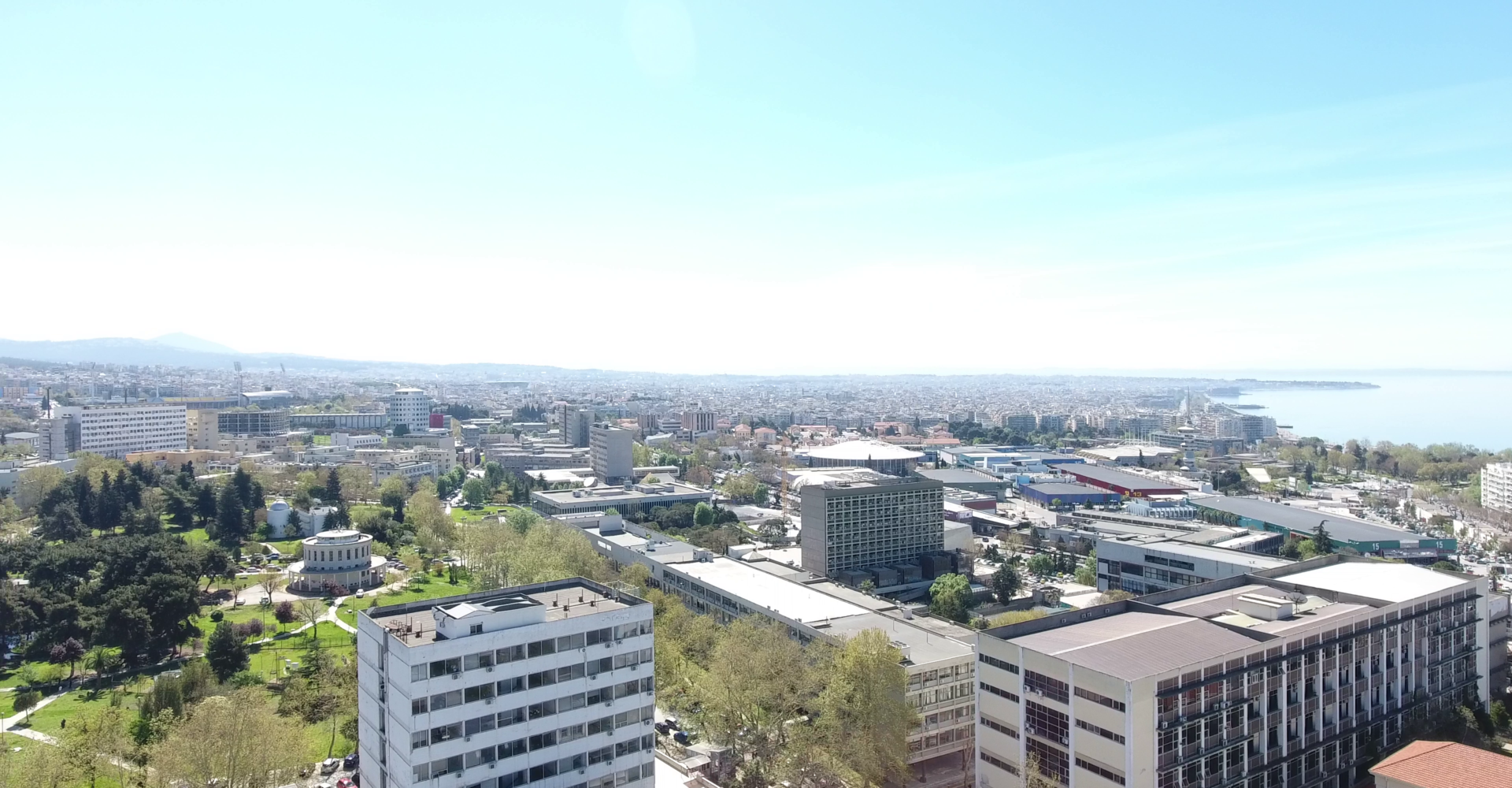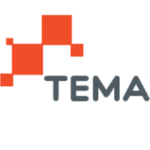Short description
This AIDA Summer School contains a three-day short course which provides an in-depth presentation of programming tools and techniques for various computer vision and deep learning problems. The target application domains are autonomous systems (e.g., real time object detection) and digital/social media analysis for Natural Disaster Management. The short course consists of three parts (A, B, C), each having lectures and programming workshops with hands-on lab exercises.
This Summer School presents recent deep learning and computer vision advances as applied in Natural Disaster Management (Horizon Europe TEMA project).
Part A will focus on Deep Learning and GPU programming. The lectures of this part provide a solid background on Deep Neural Networks (DNN) topics, notably convolutional NNs (CNNs) and deep learning for image classification. Also, Knowledge Distillation methods in DNNs will be presented. Two programming workshops will take place. The first one will be on image classification using CNNs, while the second one will be on knowledge distillation for different DNN architectures to achieve faster inference times in embedded systems.
Part B lectures will focus on deep learning algorithms for Perception on Autonomous Systems, namely on 2D object/face detection and 2D object tracking. The hands-on programming workshop will be on target detection with PyTorch and on how to use OpenCV (the most used library for computer vision) for target tracking.
Part C lectures will focus on Autonomous Systems in Natural Disaster Management (NDM). The lectures will provide a basic understanding of Real-Time Image Segmentation algorithms. The partitioners will be able to use DNNs in a hands-on programming workshop for Image Segmentation on Natural Disaster Optical Flow data (e.g., videos of floods). Moreover, methods for using Natural Language Processing in NDM will be presented. A programming workshop on exploiting text data from social media (e.g., twitter) with DNNs will take place.
The lectures and programming tools will provide programming skills for the various computer vision and deep learning problems encountered in Autonomous Systems for Natural Disaster Management, e.g., neural knowledge distillation, real-time object detection, tracking, image segmentation, NLP etc.
Lectures and programming workshops will be in English. PDF files will be available at the end of the course.
Part A (8 hours) Deep Learning for Autonomous Systems
- Deep neural networks – Convolutional NNs.
- Knowledge Distillation in Deep Neural Networks.
- Programming workshop on Deep neural networks – Convolutional NNs.
- Programming workshop on Knowledge Distillation in Deep Neural Networks.
Part B (8 hours) Autonomous Systems Perception
- Real Time Object Detection.
- 2D Object Tracking in Embedded Systems.
- Programming workshop on Real Time Object Detection.
- Programming workshop on 2D Object Tracking in Embedded Systems.
Part C (8 hours) Autnomous Systems in Natural Disaster Management
- Real-Time Image Segmentation.
- Natural Language Processing for Natural Disaster Management.
- Programming workshop on Real-Time Image Segmentation.
- Programming workshop on Natural Language Processing for Natural Disaster Management.
WHEN?
The course will take place between August 30 and September 1 2023.
WHERE?
All lectures and workshops will be delivered on-site in KEDEA buidling.
You can find additional information about the city of Thessaloniki and details on how to get to the city here.
HOW?
Each registrant will use her/his own computer for a) participating in the course and b) for running the programming exercises. A standard PC with a stable internet connection is required. The participants are also required to own a Google account for the workshops exercises.
The course will be delivered in KEDEA buidling of Aristotle University of Thessaloniki campus (see map above).
PROGRAM
| Date/time* | 30/08/2023 | 31/08/2023 | 01/09/2023 |
| Topic |
Deep Learning for Autonomous Systems |
Autonomous Systems Perception | Autnomous Systems in Natural Disaster Management |
| 8:00-8:30 | Registration | ||
| LECTURES | LECTURES | LECTURES | |
| 8:30-9:00 | Introduction to Autonomous systems | ||
| 9:00- 10:00 | Deep neural networks – Convolutional NNs | Real Time Object Detection | Real-Time Image Segmentation |
| 10:00-11:00 | Knowledge Distillation in Deep Neural Networks | 2D Object Tracking in Embedded Systems | Natural Language Processing for Natural Disaster Management |
| 11:00-11:30 | Coffee break | ||
| WORKSHOPS | WORKSHOPS | WORKSHOPS | |
| 11:30-13:30 | Programming workshop on Deep neural networks – Convolutional NNs | Programming workshop on Real Time Object Detection | Programming workshop on Real-Time Image Segmentation |
| 13:30-14:30 | Lunch break | ||
| 14:30-16:30 | Programming workshop on Knowledge Distillation in Deep Neural Networks | Programming workshop on 2D Object Tracking in Embedded Systems | Programming workshop on Natural Language Processing for Natural Disaster Management |
| 16:30-18:00 | Social gathering | ||
* Eastern European Summer Time (EEST, UTC+3 hours)
** This programme is indicative and may be modified without prior notice by announcing (hopefully small) changes in lectures/lecturers.
————————————————————————————————————————————————————————-
REGISTRATION
————————————————————————————————————————————————————————-
General Registration
Early registration (till 15/07/2023):
• Standard: 200 Euros
• Reduced registration for young professionals (up to 2 years after graduation): 100 Euros
• Unemployed or Undergraduate/MSc/PhD student*: 50 Euros
Later or on-site registration (after 15/07/2023):
• Standard: 200 Euros
• Reduced registration for young professionals (up to 2 years after graduation): 110 Euros
• Unemployed or Undergraduate/MSc/PhD student*: 60 Euro
After the completion of your payment, please fill in the form below:
A certificate of attendance will be provided by AUTH upon successful completion of the course.
Cancelation policy:
- 50% refund for cancelation up to 31/07/2023
- 0% refund afterwards
Every effort will be undertaken to run the course as planned. Due to the special COVID-19 circumstances, the organizer (AUTH) reserves right to cancel the event anytime by simple notice to the registrants (by email by announcing it in the course www page). In this case, each registrant will be reimbursed 100% for the registration fee. However, the organizer will be not held liable for any other loss incurred to the registrants.
————————————————————————————————————————————————————————-
Presentations
Presentations and lab notes will be available to the attendees.
TOPICS
Part A (first day, 2 lectures, 2 programming exercises) 30/08/2023
Deep Learning for Autonomous Systems
Part A lectures will provide a solid background on the topics of Deep neural networks and DNN programming tools (e.g., PyTorch). Two programming workshops will take place.
1. Deep neural networks – Convolutional NNs: From multi-layer Perceptrons to deep architectures. Fully connected layers. Convolutional layers. Tensors and mathematical formulations. Pooling. Training convolutional NNs. Initialization. Data augmentation. Batch Normalization. Dropout. Deployment on embedded systems. Lightweight deep learning. DNN programming tools (e.g., PyTorch).
2. Knowledge Distillation in Deep Neural Networks: The course about Knowledge distillation in deep neural networks will provide participants with an in-depth understanding of the concept of distilling knowledge from a neural network. The lecture will cover the basics of knowledge distillation including its definition, applications and benefits. Participants will learn about the different techniques used, such as adversarial distillation, multi-teacher distillation, cross-modal distillation and others. In the hands-on section of the course, the participants will be able to apply and compare various distillation techniques in computer vision tasks.
Part B (second day, 2 lectures, 2 programming exercises) 31/08/2023:
Autonomous Systems Perception
Part B lectures will focus on computer vision algorithms, namely on 2D target tracking, Deep learning for object/face detection. Two programming workshops will take place.
1. Deep learning for object/face detection: Recently, Convolutional Neural Networks (CNNs) and Transformers have been used for object/target (e.g., car, pedestrian, road sign) detection with great results. However, using such models on embedded processors for real-time processing is prohibited by HW constraints. In that sense various architectures and settings will be examined in order to facilitate and accelerate the use of embedded CNN/Transformer-based object detectors with limited computational capabilities. The following object detection topics will be presented: Object Detection as classification and regression task. CNN-based architectures for object detection (e.g., RCNN, Faster-RCNN, YOLO, SSD) and Transformer-based ones (DETR). Lightweight architectures. Data augmentation. Deployment. Evaluation and benchmarking.
2. 2D target tracking: The 2D Object Tracking in Embedded Systems lecture offers a comprehensive exploration of object tracking techniques specifically tailored for embedded systems. This lecture delves into the intricacies of tracking objects in real-time within resource-constrained environments, where considerations such as limited processing power, memory, and energy consumption play crucial roles. Attendees will gain a deep understanding of optimized algorithms, sensor integration methods, and hardware acceleration techniques designed to achieve efficient and accurate object tracking in embedded systems. Practical examples and case studies with OpenCV programming will be presented to illustrate the application of these techniques in diverse domains, including robotics, surveillance, and autonomous vehicles, empowering attendees to implement robust and reliable object tracking solutions in their own embedded systems projects.
Part C (third day, 2 lectures, 1 programming exercise) 01/09/2023:
Autnomous Systems in Natural Disaster Management
Part C lectures will offer the fundamentals of Real-Time Image Segmentation and Image Segmentation on Natural Disaster Optical Flow data (e.g., videos of floods). Two programming workshops will take place.
1. Real-Time Image Segmentation: This course provides an overview of real-time image segmentation, focusing on its advancements including deep learning-based methods (CNNs and Transformers), its challenges such as limited computational resources and the need for high accuracy, and its applications. In this lecture, the fundamental concepts of image segmentation will be discussed, with emphasis on its significance in computer vision tasks in a natural disaster setting. In the hands-on section of the course, the participants will be able to apply various deep learning algorithms for real-time image segmentation in computer vision tasks related to Natural Disasters.
2. Natural Language Processing for Natural Disaster Management: The utilization of Natural Language Processing (NLP) in the domain of natural disaster management presents an opportunity for transformative advancements. This lecture will explore how we can use machine learning in NLP to improve important aspects of disaster response, such as early warning systems, situation awareness and emergency response coordination. The lecture will explore how these advanced algorithms facilitate the extraction of actionable intelligence from unstructured textual data sources, like social media feeds. Additionally, the session will highlight the power of NLP in enabling seamless communication and information sharing among response teams, aid organizations and affected communities.
IF I HAVE A QUESTION?
Feel free to contact us for any further information with email to Ioanna Koroni (koroniioanna@csd.auth.gr) with subject «Programming Course 2023».
LECTURERS & TUTORS
Prof. Ioannis Pitas (IEEE fellow, IEEE Distinguished Lecturer, EURASIP fellow) received the Diploma and Ph.D.Degree in Electrical Engineering, both from the Aristotle University of Thessaloniki, Greece. Since 1994, he has been a Professor at the Department of Informatics of the same University. He served as a Visiting Professor at several Universities. His current interests are in the areas of image/video processing, machine learning, computer vision, intelligent digital media, human centered interfaces, affective computing, 3D imaging and biomedical imaging. He is also chair of the Autonomous Systems initiative. (Lecture: Introduction to drone imaging.)
 Ioanna Valsamara (PhD candidate)
Ioanna Valsamara (PhD candidate)
Ioanna Valsamara is currently a PhD Student and a Researcher at the Artificial Intelligence and Information Analysis Laboratory (AIIA) in the Department of Informatics of AUTH. She received her M.Sc on Advanced Computer and Communication Systems from the Electrical Engineering Department of AUTH in 2020. Her research interests include deep learning for computer vision, knowledge assessment in DNNs and knowledge diffusion in multi-agent frameworks.
 Charalampakis Evangelos (PhD Candidate)
Charalampakis Evangelos (PhD Candidate)
Charalampakis Evangelos is a graduate of the Informatics Department of Aristotle University of Thessaloniki and a PhD candidate under Professor Ioannis Pitas. He is currently a research assistant in the Artificial Intelligence and Information Technology laboratory. His research interests include, but are not limited to, Geometric Deep Learning, Transfer Learning and Knowledge Distillation in DNNs.
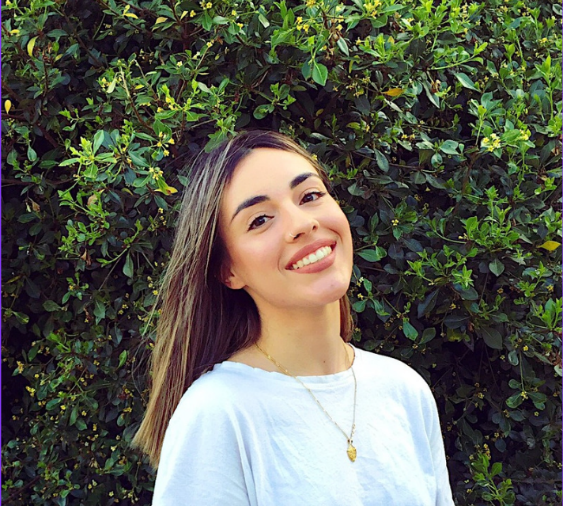 Erwfili Alexaki (Research Assistnat)
Erwfili Alexaki (Research Assistnat)
Alexaki Erofili obtained her B.Sc. in Mathematics at Aristotle University of Thessaloniki in 2021. She is currently a research assistant in the Artificial Intelligence and Information Analysis Laboratory in the Department of Informatics at the Aristotle University of Thessaloniki.
 Zografia Sotireli (Research Assistant)
Zografia Sotireli (Research Assistant)
Zografia Sotireli obtained her B.Sc. in Civil Engineering in 2022.She is currently a research assistant in the Artificial Intelligence and Information Analysis Laboratory in the Department of Informatics at the Aristotle University of Thessaloniki. Her research interests include diffusion models, physics informed Deep Neural Networks and Deep Learning for PDEs.
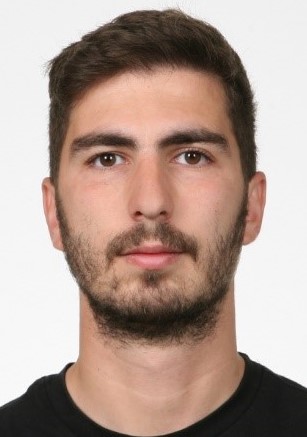 Nikolaos Militsis (Research Associate)
Nikolaos Militsis (Research Associate)
Militsis Nikolaos Marios holds a Diploma of Engineering from the Faculty of Engineering at Aristotle University of Thessaloniki (AUTH). Currently, he serves as a research associate at the Computer Vision and Machine Learning laboratory (CVML) at AUTH. His research activities primarily revolve around exploring and developing innovative approaches using deep learning techniques and computational intelligence methods to address challenges in computer vision tasks.
Dimitris Psarras (Research Assistant)
Dimitrios Psarras received the B.Sc. degree in Physics from the Aristotle University of Thessaloniki in 2021. Dimitrios is currently a research assistant at the Artificial Intelligence and Information Analysis laboratory, in the Department of Informatics, Aristotle University of Thessaloniki, Greece. His current research interests include the areas of machine learning and computer vision for autonomous systems.
Educational record of Prof. I. Pitas
Prof I. Pitas was Visiting/Adjunct/Honorary Professor/Researcher and lectured at several Universities: University of Toronto (Canada), University of British Columbia (Canada), EPFL (Switzerland), Chinese Academy of Sciences (China), University of Bristol (UK), Tampere University of Technology (Finland), Yonsei University (Korea), Erlangen-Nurnberg University (Germany), National University of Malaysia, Henan University (China). He delivered 90 invited/keynote lectures in prestigious international Conferences and top Universities worldwide. He ran 17 short courses and tutorials on Autonomous Systems, Computer Vision and Machine Learning, most of them in the past 3 years in many countries, e.g., USA, UK, Italy, Finland, Greece, Australia, N. Zealand, Korea, Taiwan, Sri Lanka, Bhutan.


PAST COURSE EDITIONS
2019
Participants: 53, Countries: UK, Germany, Sweden, Norway, Italy, Greece, Croatia, Slovakia.
Registrant comments:
(Anonymous) “… The lectures during the workshops were really good. …”,
(Anonymous) “… Course material was very appealing and perfectly adequate. …”
SPONSORS
If you want to be our sponsor send us an email here: koroniioanna@csd.auth.gr
SAMPLE COURSE MATERIAL. RELATED LITERATURE
1) Multidrone Project (MULTIple DRONE platform for media production), funded by the EU (2017-19), within the scope of the H2020 framework, https://multidrone.eu/
2) Semi-Supervised Subclass Support Vector Data Description for image and video classification, V. Mygdalis, A. Iosifidis, A. Tefas, I. Pitas, Neurocomputing, vol. 291, pp. 237-241, 2018
3) Face detection Hindering, P. Chriskos, J. Munro, V. Mygdalis, I. Pitas, Proceedings of the IEEE Global Conference on Signal and Information Processing (GLOBALSIP), Quebec, Montreal, 2017
4) 2D visual tracking for sports UAV cinematography applications, O. Zachariadis, V. Mygdalis, I. Mademlis, I. Pitas, Proceedings of the IEEE Global Conference on Signal and Information Processing (GLOBALSIP), Montreal, Canada, 2017
5) Neurons With Paraboloid Decision Boundaries for Improved Neural Network Classification Performance, N. Tsapanos, A. Tefas, N. Nikolaidis and I. Pitas, IEEE Transactions on Neural Networks and Learning Systems (TNNLS), vol. 30, issue 1, pp. 284-294, 2019
6) Convolutional Neural Networks for Visual Information Analysis with Limited Computing Resources, P. Nousi, E. Patsiouras, A. Tefas, I. Pitas, Proceedings of the IEEE International Conference on Image Processing (ICIP), Athens, Greece, 2018
7) Overview of drone cinematography for sports filming, I. Mademlis, V. Mygdalis, C. Raptopoulou, N.Nikolaidis, N. Heise, T. Koch, T. Wagner, A. Messina, F. Negro, S. Metta, I.Pitas, European Conference on Visual Media Production (CVMP), London, UK, 2017
8) Challenges in Autonomous UAV cinematography: An overview, I. Mademlis, V. Mygdalis, N. Nikolaidis, I. Pitas, Proceedings of the IEEE International Conference on Multimedia and Expo (ICME), San Diego, USA, 2018
9) Learning Multi-graph regularization for SVM classification, V.Mygdalis, A.Tefas, I.Pitas, Proceedings of the IEEE International Conference on Image Processing (ICIP), Athens, Greece, 2018
10) UAV Cinematography Constraints Imposed by Visual Target Trackers, I. Karakostas, I. Mademlis, N. Nikolaidis, I. Pitas, Proceedings of the IEEE International Conference on Image Processing (ICIP), Athens, Greece, 2018
11) Efficient camera control using 2D visual information for unmanned aerial vehicle-based cinematography, N. Passalis, A. Tefas, I. Pitas, Proceedings of the IEEE International Symposium on Circuits and Systems (ISCAS), Florence, Italy, 2018
12) The future of media production through multi-drones’ eyes, A. Messina, S. Metta, M. Montagnuolo, F. Negro, V. Mygdalis, I. Pitas, J. Capitán, A. Torres, S. Boyle, D. Bull, F. Zhang, International Broadcasting Convention (IBC), Amsterdam, Netherlands, 2018
13) Quality Preserving Face De-Identification Against Deep CNNs, P. Chriskos, R. Zhelev, V. Mygdalis, I. Pitas, Proceedings of the IEEE International Workshop on Machine Learning for Signal Processing (MLSP), Aalborg, Denmark, 2018
14) Improving Face Pose Estimation using Long-Term Temporal Averaging for Stochastic Optimization, N. Passalis, A. Tefas, Proceedings of the International Conference on Engineering Applications of Neural Networks, EANN 2017, Athens, Greece, 2017
15) Discriminatively Trained Autoencoders for Fast and Accurate Face Recognition, P. Nousi, A. Tefas, Proceedings of the International Conference on Engineering Applications of Neural Networks, EANN, Athens, Greece, 2017
16) Concept Detection and Face Pose Estimation Using Lightweight Convolutional Neural Networks for Steering Drone Video Shooting, N. Passalis, A. Tefas, Proceedings of the European Signal Processing Conference (EUSIPCO), Kos, Greece, 2017
17) Human Crowd Detection for Drone Flight Safety Using Convolutional Neural Networks, M.Tzelepi, A.Tefas, Proceedings of the European Signal Processing Conference (EUSIPCO), Kos, Greece, 2017
18) Lightweight Two-Stream Convolutional Face Detection, D. Triantafyllidou, P. Nousi, A. Tefas, Proceedings of the European Signal Processing Conference (EUSIPCO), Kos, Greece, August, 2017
19) Fast Deep Convolutional Face Detection in the Wild Exploiting Hard Sample Mining, D. Triantafyllidou, P. Nousi, A. Tefas, Big Data Research, Elsevier, vol. 11, pp. 65-76, 2018
20) Learning Bag-of-Features Pooling for Deep Convolutional Neural Networks, N. Passalis, A. Tefas, Proceedings of the International Conference on Computer Vision (ICCV), Venice, Italy, 2017
21) Self-Supervised Auto-encoders for Clustering and Classification, P. Nousi, A. Tefas, Evolving Systems Journal, Springer, pp 1–14, 2018
22) Unsupervised Knowledge Transfer using Similarity Embeddings, N. Passalis, A. Tefas, IEEE Transactions on Neural Networks and Learning Systems (TNNLS), vol. 30, issue 3, pp. 946-950, 2018
23) Recurrent Attention for Deep Neural Object Detection, G. Symeonidis, A. Tefas, Hellenic Conference on Artificial Intelligence (SETN), Rio Patras, Greece, 2018
24) Neural Network Knowledge Transfer using Unsupervised Similarity Matching, N. Passalis, A. Tefas, Proceedings of the International Conference on Pattern Recognition (ICPR), Beijing, China, 2018
25) Deep reinforcement learning for frontal view person shooting using drones, N. Passalis, A. Tefas, Proceedings of the IEEE Conference on Evolving and Adaptive Intelligent Systems (EAIS), Rhodes, Greece, 2018
26) A Multidrone Approach for Autonomous Cinematography Planning, A. Torres-Gonzalez, J. Capitan, R. Cunha, A. Ollero and I. Mademlis, Proceedings of the Iberian Robotics Conference (ROBOT), 2017
27) Decentralized safe conflict resolution for multiple robots in dense scenarios, E. Ferrera, J. Capitán, A.R. Castaño and P.J. Marrón, Robotics and Autonomous Systems, vol. 91, pp. 179-193, 2017
28) Cooperative perimeter surveil using Bluetooth framework under communication constraints, J.M. Aguilar, P. R. Soria, B.C. Arrue and A. Ollero, Proceedings of the Iberian Robotics Conference (ROBOT), 2017
29) Applying Frontier Cells Based Exploration and Lazy Theta* Path Planning over Single Grid-Based World Representation for Autonomous Inspection of Large 3D Structures with an UAS, M. Faria, I. Maza and A. Viguria, Journal of Intelligent & Robotic Systems, accapted Springer
30) Discriminative Optimization: Theory and Applications to Computer Vision Problems, J. Vongkulbhisal, F. De la Torre, and J. P. Costeira, IEEE Transactions on Pattern Analysis and Machine Intelligence (PAMI), vol. 41, issue 4, pp. 829 – 843, 2018
31) Integrated Visual Servoing Solution to Quadrotor Stabilization and Attitude Estimation Using a Pan and Tilt Camera, D. Cabecinhas, S. Brás, R. Cunha, C. Silvestre, P. Oliveira, IEEE Transactions on Control Systems Technology, vol. 27, issue 1, pp. 14-29, 2017
32) UAL: An Abstraction Layer for Unmanned Aerial Vehicles, F. Real, A. Torres-González, P. Ramón-Soria, J. Capitán and A. Ollero, Proceedings of the International Symposium on Aerial Robotics (ISAR), Philadelphia, PA, USA, 2018
33) Inverse Composition Discriminative Optimization for Point Cloud Registration, J. Vongkulbhisal, B. I. Ugalde, F. De la Torre, J. P. Costeira, Proceedings of the IEEE Conference on Computer Vision and Pattern Recognition (CVPR), Salt Lake City, USA, 2018
34) P. Chriskos, O.Zoidi, A.Tefas and I.Pitas, De-identifying facial images using singular value decomposition and projections, Multimedia Tools and Applications, Springer, vol. 76, issue 3, pp. 3435-3468, 2017
35) Cooperative Unmanned Aerial Systems for Fire Detection, Monitoring and Extinguishing, L. Merino, J.R. Martinez-de Dios, A. Ollero, In “Handbook of Unmanned Aerial Vehicles”, ISBN 978-90-481-9706-4, Springer, 2015
36) Shot Type Feasibility in Autonomous UAV Cinematography, I. Karakostas, I. Mademlis, N. Nikolaidis, I. Pitas, Proceedings of the IEEE International Conference on Acoustics, Speech and Signal Processing (ICASSP), Brighton, UK, 2019
37) High-Level Multiple-UAV Cinematography Tools for Covering Outdoor Events, I. Mademlis, V. Mygdalis, N. Nikolaidis, M. Montagnuolo, F. Negro, A. Messina, I. Pitas, IEEE Transactions on Broadcasting, accepted for publication, 2019
38) Autonomous Unmanned Aerial Vehicles Filming in Dynamic Unstructured Outdoor Environments, I. Mademlis, N. Nikolaidis, A. Tefas, I. Pitas, T. Wagner, A. Messina,
IEEE Signal Processing Magazine, vol. 36, issue 1, pp. 147-153, 2019
39) Deep Convolutional Feature Histograms for Visual Object Tracking, P. Nousi, A. Tefas, I. Pitas, Proceedings of the IEEE International Conference on Acoustics, Speech and Signal Processing (ICASSP), Brighton, UK, 2019
40) Semantic Map Annotation Through UAV Video Analysis Using Deep Learning Models in ROS, E. Kakaletsis, M. Tzelepi, P.I. Kaplanoglou, C. Symeonidis, N. Nikolaidis, A. Tefas, I. Pitas, Proceedings of the International Conference on Multimedia Modeling (MMM), Thessaloniki, Greece, 2019
41) Exploiting multiplex data relationships in Support Vector Machines, V. Mygdalis, A. Tefas, I. Pitas, Pattern Recognition, Elsevier, vol. 85, pp. 70-77, 2019
42) Deep reinforcement learning for controlling frontal person close-up shooting, N. Passalis, A. Tefas, Neurocomputing, Elsevier, vol. 335, pp. 37-47, 2019
43) Graph Embedded Convolutional Neural Networks in Human Crowd Detection for Drone Flight Safety, M. Tzelepi, A. Tefas, IEEE Transactions on Emerging Topics in Computational Intelligence, accepted for publication, 2019
44) Training Lightweight Deep Convolutional Neural Networks Using Bag-of-Features Pooling, N. Passalis, A. Tefas, IEEE Transactions on Neural Networks and Learning Systems, accepted for publication, 2018
Useful Links
Prof. Ioannis Pitas: https://scholar.google.gr/citations?user=lWmGADwAAAAJ&hl=el
Multidrone project: https://multidrone.eu/
Icarus Research Team: https://icarus.csd.auth.gr/
Laboratory of Artificial Intelligence and Information Analysis: http://www.aiia.csd.auth.gr/
Department of Informatics, Aristotle University of Thessaloniki (AUTH): http://www.csd.auth.gr/en/
Thessaloniki: https://wikitravel.org/en/Thessaloniki

